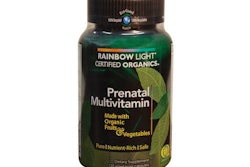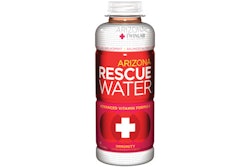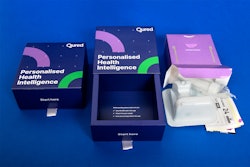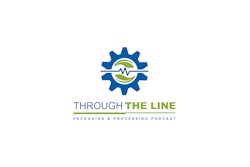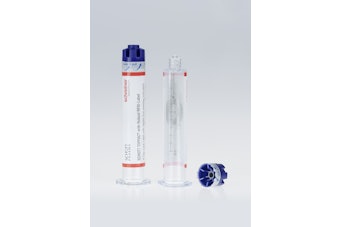
And when labeling and advertising claims are in issue, these product categories overlap as never before.
That's because for over a decade, legal professionals, regulatory officials, and industry have faced new challenges as drugs and foods, including dietary supplements (marketed as “nutraceuticals”), have begun to overlap in important ways due to changes in law, and changes in the marketing and product development habits of the industry.
Packagers and consumers alike see the evidence every day: dietary supplements that claim to help with one or another health condition, or traditional foods like orange juice or green tea that claim to prevent disease, sometimes based on their traditional formulations, and sometimes based on fortification. It was the supplements whose claims proliferated first, followed by more claims on labels of traditional foods.
Though you see it written and hear it said all the time, it's simply not true that “dietary supplements are not regulated.” They are plenty regulated, with detailed labeling requirements, limits on the claims their labels can make for health effects, required manufacturing practices, and other requisites applicable to the companies who make them. While supplement labels can claim effects on the structure or function of the body, they cannot in most cases claim effect on a disease. Supplement companies must have substantiation for any such claim they make, and give the FDA written notice of the claim.
Dietary supplements are not, however, approved for marketing in advance by the FDA or any other agency, the way new drugs are, because, generally speaking, supplements tend to be safe to those who take them (or at least not unsafe enough as a class to gear up a whole government approval apparatus). That's not a trivial matter, and it's probably why supplements are often perceived as unregulated.
Also emerging and sharing characteristics with foods and drugs is a whole category called “medical foods,” which thus far is lightly regulated by the FDA, but which includes foods that are intended for use under medical supervision to address a specific dietary need, though they are sold freely like other foods and labeled as foods.
In many cases, what makes something a “drug” under the law is its intended use, revealed most often by the claims on its label—if it's a product that claims to have an effect on a disease, usually the law says it's a drug, even if the manufacturer thinks it's a food or that special category of foods called dietary supplements.
So supplement products, or even traditional foods, compete directly in some cases with drugs when they claim to have effect on the structure of the body. Imagine you make such a drug product, which you spent years and millions of dollars in getting approved by the FDA, and have to compete with a supplement that does not require approval.
As a drug maker, you might be pleased to see the agency cracking down on supplements that make improper drug claims on their labels or in advertising.
The FDA will occasionally write a Warning Letter to a maker of supplements who makes a disease claim on its label or Web site or elsewhere, and will tell them that such claims make the products into drugs under the law. They will also warn makers of traditional foods who make improper disease claims, though some food types have been cleared to make specified disease prevention claims.
Recent FDA Warning Letters indicate that the agency is not reluctant to warn companies about alleged labeling violations even if the violations have a tenuous connection to health consequences.
A product is not always what a packager thinks it is, for legal purposes, and the claims made for the product's effect are a key determinant of its status. With foods, dietary supplements, and drugs able these days to make some similar types of claims, and a newly active FDA taking action against violations, packagers need to be vigilant and careful about their labeling and advertising content.
That's because for over a decade, legal professionals, regulatory officials, and industry have faced new challenges as drugs and foods, including dietary supplements (marketed as “nutraceuticals”), have begun to overlap in important ways due to changes in law, and changes in the marketing and product development habits of the industry.
Packagers and consumers alike see the evidence every day: dietary supplements that claim to help with one or another health condition, or traditional foods like orange juice or green tea that claim to prevent disease, sometimes based on their traditional formulations, and sometimes based on fortification. It was the supplements whose claims proliferated first, followed by more claims on labels of traditional foods.
Though you see it written and hear it said all the time, it's simply not true that “dietary supplements are not regulated.” They are plenty regulated, with detailed labeling requirements, limits on the claims their labels can make for health effects, required manufacturing practices, and other requisites applicable to the companies who make them. While supplement labels can claim effects on the structure or function of the body, they cannot in most cases claim effect on a disease. Supplement companies must have substantiation for any such claim they make, and give the FDA written notice of the claim.
Dietary supplements are not, however, approved for marketing in advance by the FDA or any other agency, the way new drugs are, because, generally speaking, supplements tend to be safe to those who take them (or at least not unsafe enough as a class to gear up a whole government approval apparatus). That's not a trivial matter, and it's probably why supplements are often perceived as unregulated.
Also emerging and sharing characteristics with foods and drugs is a whole category called “medical foods,” which thus far is lightly regulated by the FDA, but which includes foods that are intended for use under medical supervision to address a specific dietary need, though they are sold freely like other foods and labeled as foods.
In many cases, what makes something a “drug” under the law is its intended use, revealed most often by the claims on its label—if it's a product that claims to have an effect on a disease, usually the law says it's a drug, even if the manufacturer thinks it's a food or that special category of foods called dietary supplements.
So supplement products, or even traditional foods, compete directly in some cases with drugs when they claim to have effect on the structure of the body. Imagine you make such a drug product, which you spent years and millions of dollars in getting approved by the FDA, and have to compete with a supplement that does not require approval.
As a drug maker, you might be pleased to see the agency cracking down on supplements that make improper drug claims on their labels or in advertising.
The FDA will occasionally write a Warning Letter to a maker of supplements who makes a disease claim on its label or Web site or elsewhere, and will tell them that such claims make the products into drugs under the law. They will also warn makers of traditional foods who make improper disease claims, though some food types have been cleared to make specified disease prevention claims.
Recent FDA Warning Letters indicate that the agency is not reluctant to warn companies about alleged labeling violations even if the violations have a tenuous connection to health consequences.
A product is not always what a packager thinks it is, for legal purposes, and the claims made for the product's effect are a key determinant of its status. With foods, dietary supplements, and drugs able these days to make some similar types of claims, and a newly active FDA taking action against violations, packagers need to be vigilant and careful about their labeling and advertising content.




